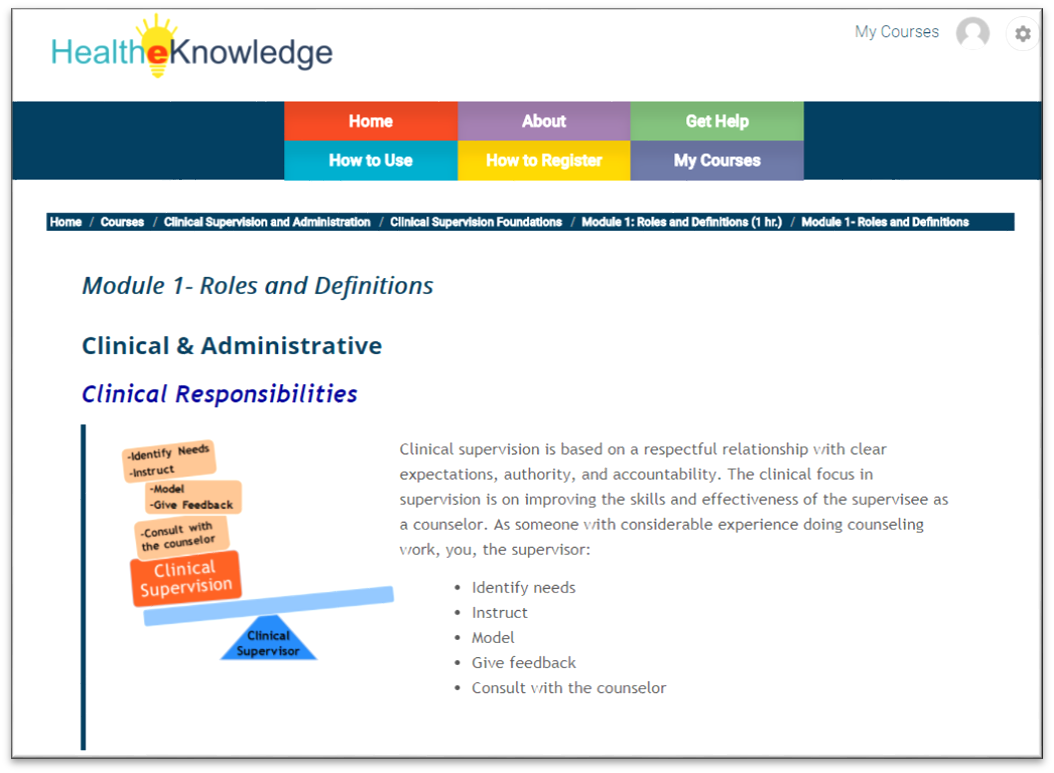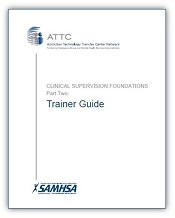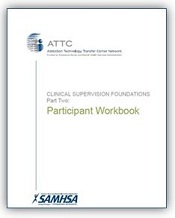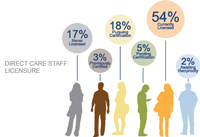 Workforce Development is an essential piece of the ATTC Network's approach to achieving its goal of improving addictions treatment and recovery outcomes for all people who need treatment. The 2012 "Vital Signs" National Workforce Study conducted by the Network found that:
Workforce Development is an essential piece of the ATTC Network's approach to achieving its goal of improving addictions treatment and recovery outcomes for all people who need treatment. The 2012 "Vital Signs" National Workforce Study conducted by the Network found that:
- More SUD treatment professionals will be needed in the next five years. While there is limited data to track the projected growth, retraction, and composition of the SUD workforce over the next five years, it is anticipated that the implementation of the Affordable Care Act in 2014 will result in a significant increase in the need for professionals who are able to care for individuals with SUDs in a variety of managed healthcare settings.
- Applicants for open positions in SUD treatment facilities need to be better qualified. Clinical directors reported that their facilities face significant challenges in filling open positions due to a lack of qualified applicants.
- The workforce needs to be diversified. The current workforce is predominantly white, female, and over the age of 45. Younger professionals from diverse racial/ethnic backgrounds who are able to work in integrated settings will be needed.
During this process, the Network seeks to prepare professionals to enter the field, build their skills as supervisors and develop their own leadership style to help guide the field in the future. While you will find many resources throughout our site, we have highlighted a few below.
Addiction Counseling Competencies
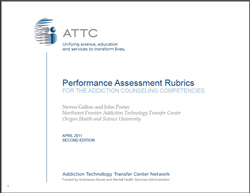 SAMHSA, in cooperation with the Addiction Technology Transfer Center (ATTC) Network, originally published Addiction Counseling Competencies: The Knowledge, Skills, and Attitudes of Professional Practice as a Technical Assistance Publication (TAP 21) in 1988. In the years since, TAP 21 has become a standard for the development of addiction counseling curricula and the assessment of counseling proficiency. In 2005 the document underwent a thorough review and revision to align with evolving developments in the field. The revision was published in 2006 and reprinted in 2007, 2008 and 2009 (CSAT, 2006).
SAMHSA, in cooperation with the Addiction Technology Transfer Center (ATTC) Network, originally published Addiction Counseling Competencies: The Knowledge, Skills, and Attitudes of Professional Practice as a Technical Assistance Publication (TAP 21) in 1988. In the years since, TAP 21 has become a standard for the development of addiction counseling curricula and the assessment of counseling proficiency. In 2005 the document underwent a thorough review and revision to align with evolving developments in the field. The revision was published in 2006 and reprinted in 2007, 2008 and 2009 (CSAT, 2006).
TAP 21 identifies 123 competencies essential to the effective practice of counseling for individuals and families experiencing psychoactive substance use disorders. The Performance Assessment Rubrics for the Addiction Counseling Competencies is a companion product to TAP 21. It describes counselor/clinician proficiency along a continuum marked by four distinct benchmark descriptions of counselor ability for each of the competencies.


